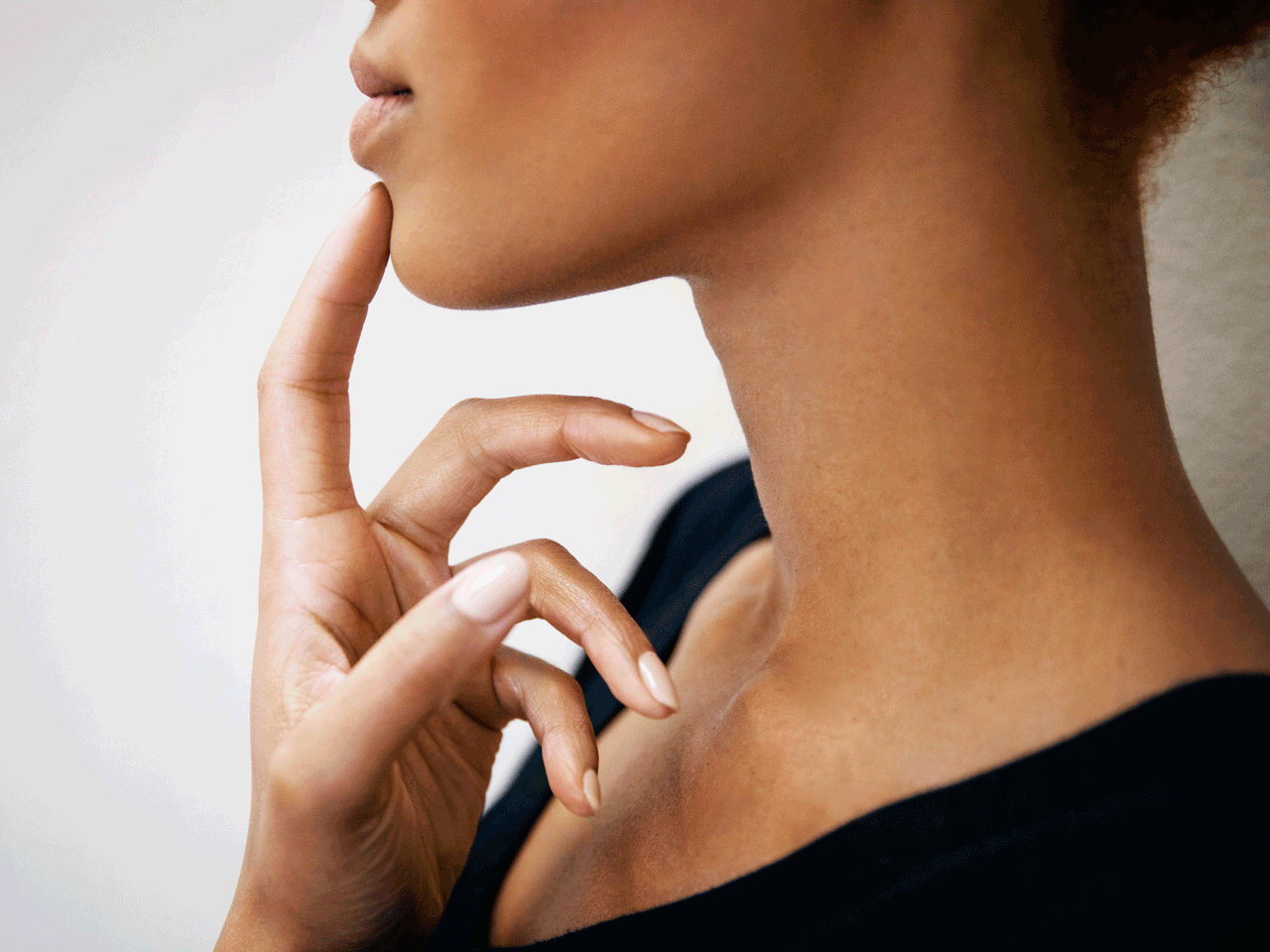The human body can come with plenty of random quirks. Shoutout to anyone who’s captivated friends by rolling the tip of their tongue into a tiny W. Being able to “pop” your jaw when you open your mouth wide is another interesting physical oddity, but if you’ve ever done this, you know it can just feel...wrong. Shouldn’t we leave jaw-unhinging to snakes? Here’s how to know if your ability to pop your jaw is just an interesting party trick, or if it’s a sign of something more serious.
You have a temporomandibular joint in front of each ear to bridge the gap between your jawbone and your skull, according to the Mayo Clinic. These joints act as hinges that allow you to belt out Ariana Grande’s latest at karaoke, devour your “lunch” at 11 A.M. because your stomach commanded it, and do anything else that requires opening your mouth.
These joints are pretty unique in that they’re not only able to open and close—they can slide back and forth and side to side, according to Merck Manuals, making them some of the most complex joints in your body. But sometimes your temporomandibular joints can get a little wonky, leading to a popping or clicking noise and sensation when you open your mouth wide. Luckily, this isn’t always a problem.
If it does, you may be dealing with a jaw condition that falls under a broader category known as TMJ disorders (or temporomandibular joint and muscle disorders). Painful clicking or popping when you open and close your mouth is one of the biggest symptoms, according to the National Institute of Dental and Craniofacial Research (NIDCR), but you can also have jaw stiffness, trouble opening your mouth, feeling like your jaw is “locking,” a change in the way your upper and lower teeth fit together, and general jaw pain.
Although the cause of TMJ disorders isn’t always apparent, sometimes it comes down to an issue with a cartilage disc inside each of the joints, Erich Voigt, M.D., an otolaryngologist (ear, nose, and throat doctor) at NYU Langone Health, tells SELF. These are called articular discs, and as slippery pieces of tissue, they are supposed to prevent your skull and jawbone from grinding against each other, according to Merck Manuals.
For instance, pain when you pop your jaw can be a sign that one or both of your articular discs have been pushed forward from their usual location so they can’t fully do their job, Helen Giannakopoulos, D.D.S., M.D., director of the Oral & Maxillofacial Surgery Residency Program at the Perelman School of Medicine at the University of Pennsylvania, tells SELF. This is a form of what’s known as internal temporomandibular joint derangement, and it can happen due to habits like clenching and grinding your teeth severely or chewing gum to the point where you regularly exhaust your jaw, she explains.
If you can pop your jaw and it doesn’t bother you or cause pain, you don’t necessarily need to seek help. “Jaw popping in and of itself without associated pain does not require any intervention,” Dr. Giannakopoulos says. If this is what you’re dealing with, it could mean a few different things. One or both of your articular discs could be worn or irregularly shaped, but not severely enough to cause discomfort, Dr. Voigt says—just that delightful sound. Or you could be dealing with internal temporomandibular joint derangement that only presents with clicking or popping without pain, according to Merck Manuals. Another potential factor is that structural components in your jaw, like ligaments, just happen to be extra-elastic and allow the lower half of your jaw to shift down more than normal, which might cause a popping sound, Dr. Voigt says.
The professional in question will want to physically examine you, which will likely involve them listening to and feeling your jaw when you open and close your mouth, otherwise investigating the range of motion in your jaw, and pressing on areas around your jaw to see where you feel pain or discomfort, the Mayo Clinic says.
They will also probably order a CT scan, which can show detailed images of your jaw’s structure, or an MRI, which can show problems with your jaw’s discs. In some cases, your doctor or dentist will do a TMJ arthroscopy, which involves inserting a small thin tube into the joint space, followed by a small camera to check out the area, the Mayo Clinic says.
If you’re diagnosed with a TMJ disorder, your doctor or dentist may recommend you use pain relievers like nonsteroidal anti-inflammatory drugs, along with muscle relaxants for a few days or weeks until you feel better, according to the Mayo Clinic. They may also recommend wearing a device like an oral splint or special mouth guard, doing physical therapy, and learning more about the cause of your TMJ disorder so you can adjust your behavior as much as possible (like by using stress-relieving techniques to avoid grinding your teeth), the Mayo Clinic says.
In the most severe cases, people with TMJ disorders may require surgery to repair the joint (or joints) or corticosteroid injections to tame inflammation and help with the pain. But that’s the worst-case scenario, so don’t let it keep you from telling a medical professional about your jaw’s special, uh, talent, if it’s concerning you at all.
Related:

